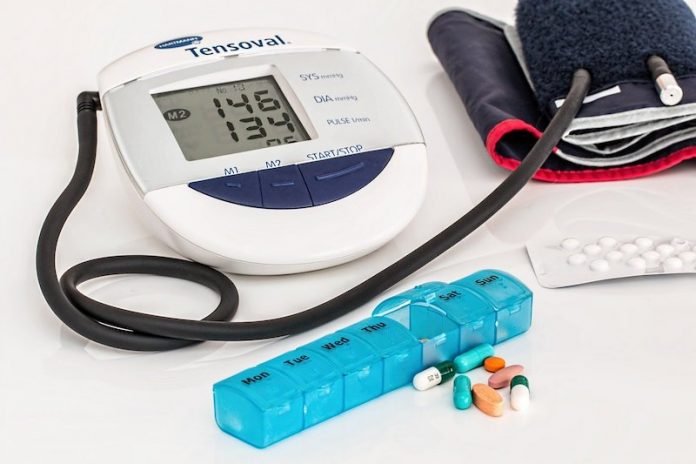
In a new study, researchers found that a small piece of genetic material could hold the key to diagnosing and treating high blood pressure earlier.
They found that a small piece of genetic material could explain why arteries become increasingly stiff (which happens in high blood pressure) and why blood vessels age faster.
If found in patient blood samples, this molecule could give doctors an early warning of artery problems, and help people get treatment more quickly.
The research was conducted by scientists at the University of Glasgow.
The researchers pinpointed a piece of genetic material called a micro-RNA—specifically one called miR-214—which makes white blood cells called T-cells move to the fatty tissue around arteries.
Once in this tissue, the T-cells cause inflammation, causing the artery structure to become damaged and increasing their stiffness.
This work is the first to link a cascade of damaging events linked to blood pressure to higher levels of miR-214.
The team had previously discovered that miR-214 caused kidney scarring, or fibrosis, following injury.
In this study, they identified how small molecule of microRNA that is present in lymphocytes, white blood cells responsible for fighting infections, can direct these cell to blood vessels.
This is responsible, at least in part, for the process of accelerated vascular aging characterized by stiffer vessels.
They found this not only in disease models but also provided proof of concept in patients with hypertension. These studies provide important insights about how hypertension may interact with inflammation.
This research suggests that miR-214 levels might be useful to identify people whose blood vessels are at risk of damage earlier, and could be a good target to develop new treatments.
This is important because preventing high blood pressure could ultimately help us reduce CKD and prevent kidney failure developing.
One researcher of the study is Dr. Laura Denby, Kidney Research UK Senior Research Fellow.
Copyright © 2020 Knowridge Science Report. All rights reserved.



